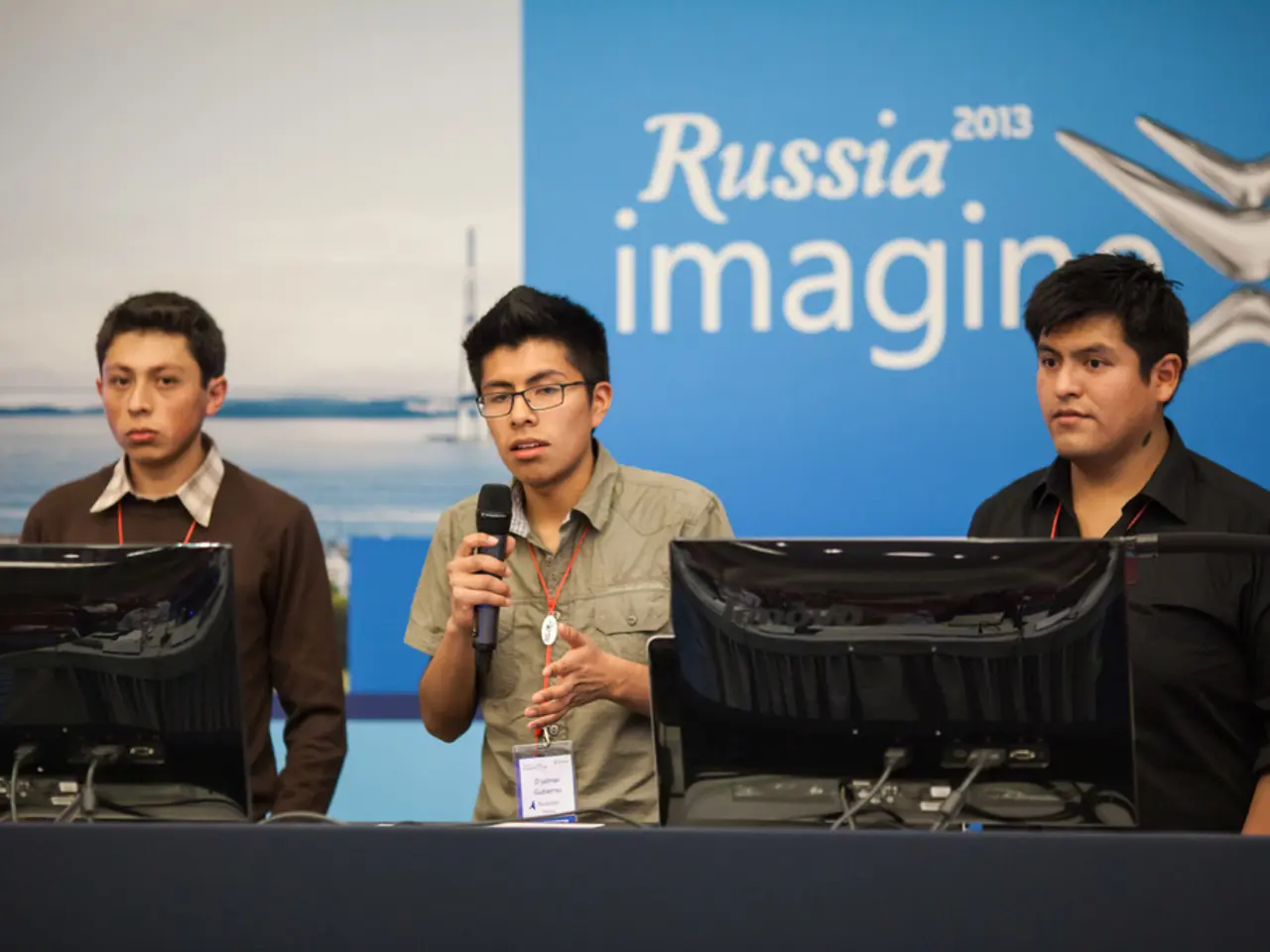Trump discusses peace conditions with Merz and Selenskyy
In a show of solidarity, German Chancellor Friedrich Merz warmly welcomed Ukrainian President Volodymyr Zelensky to the Chancellery in Berlin. The visit, Merz noted, was a special sign of solidarity amidst ongoing tensions between Ukraine and Russia.
The upcoming U.S.-Russia summit in Alaska is set to maintain fundamental European and Ukrainian security interests. Chancellor Merz invited heads of state and government from France, the UK, Italy, Poland, Finland, EU Commission President Ursula von der Leyen, EU Council President António Costa, NATO Secretary-General Mark Rutte, and President Zelensky to a preliminary meeting before the discussions with President Trump.
During the meetings, Merz reaffirmed five fundamental prerequisites for a peaceful resolution to the Ukraine conflict: a ceasefire, agreement on essential elements in a framework agreement, Ukraine's readiness for negotiations on territorial questions with the contact line as the starting point, maintenance of the principle that borders should not be changed by force, and robust security guarantees for Kyiv and the defensive capability of Ukrainian forces.
The key points of dispute between the U.S., Europe, and Russia regarding Ukraine's security guarantees and territorial concessions are complex and contentious. The U.S. and European countries aim to provide concrete security guarantees to deter future Russian aggression, including potentially sending non-frontline allied troops to Ukraine as a "reassurance force." However, the exact nature of these security guarantees remains unclear and is still being negotiated. Europe wants "concrete and solid" mechanisms possibly inspired by NATO’s Article 5, covering defence of Ukrainian borders and regional security.
Russia, on the other hand, insists on having a key role, including a veto-like control over Ukraine’s future security arrangements. Moscow wants restrictions on NATO’s presence in Eastern Europe and for Russia to define Ukraine’s sovereignty limits, essentially asking Ukraine to cede control over parts of its territory to Russia or Russian influence.
The U.S., particularly under President Trump, is expected to push Ukraine to make major territorial concessions in exchange for security guarantees. However, President Zelenskyy and many Ukrainians strongly oppose giving up any territory permanently, seeing this as detrimental to Ukraine’s security and sovereignty.
Preliminary agreements about security guarantees were reported between Trump and Putin, but Kremlin officials have since contradicted these, making actual peace talks and agreements difficult. Russia’s ongoing military actions, including missile strikes against Ukrainian and Western targets, further complicate the diplomatic landscape.
Zelensky hopes for an immediate ceasefire and robust security guarantees for Ukraine ahead of the Alaska summit. Europeans and Zelensky fear that Trump and Putin could agree on territorial concessions or a "territorial exchange" of Ukraine with Russia, which Kyiv strictly rejects. If there's no progress in Alaska, the U.S. and Europeans must increase pressure, Merz emphasized.
Negotiations should be part of a joint transatlantic strategy, according to Merz. The video conference with Trump was to be followed by a discussion in the so-called coalition of the willing, led by Germany, France, and the UK. NATO Secretary-General Mark Rutte spoke of a "great call" during the consultations.
The Russian annexation of Ukrainian territories and their inclusion in the Russian constitution are not internationally recognized. Russia threatens to take more territory if Ukraine does not accept a Moscow-dictated peace. Chancellor Merz and President Zelensky insist on security guarantees for Ukraine before the U.S.-Russia summit.
Trump repeatedly emphasizes that the USA do not want to continue paying for Ukraine's defensive struggle. However, Merz assures that President Trump knows this position and shares it to a large extent. The one-on-one meeting between Trump and Putin will take place at the military base Elmendorf-Richardson in Anchorage, Alaska. The meeting is expected to be a significant event in the ongoing conflict between Ukraine and Russia.
[1] https://www.reuters.com/world/europe/putin-says-he-ready-discuss-ukraine-with-trump-at-alaska-summit-2021-11-15/ [2] https://www.bbc.com/news/world-europe-59289797 [3] https://www.nytimes.com/2021/11/15/world/europe/putin-trump-alaska-summit.html [4] https://www.politico.eu/article/putin-trump-ukraine-summit-alaska-security-guarantees/ [5] https://www.dw.com/en/germany-calls-for-concrete-security-guarantees-for-ukraine/a-59985213
- The upcoming U.S.-Russia summit in Alaska is not only crucial for fundamental European and Ukrainian security interests, but it also provides an opportunity for discussions on war-and-conflicts concerning Ukraine, particularly the need for robust security guarantees.
- Chancellor Merz called for heads of state and government from key European nations, including France, the UK, Italy, Poland, Finland, EU Commission President Ursula von der Leyen, EU Council President António Costa, NATO Secretary-General Mark Rutte, and President Zelensky to a preliminary meeting before the discussions with President Trump. This gathering was aimed at creating a united front in politics regarding the issues of Ukraine, including the Question of general-news regarding its security guarantees and territorial concessions.






